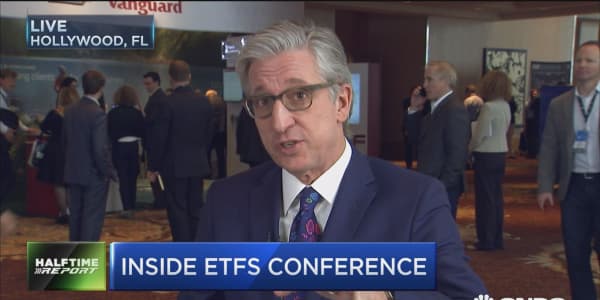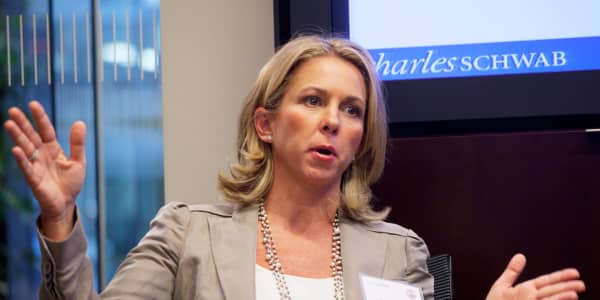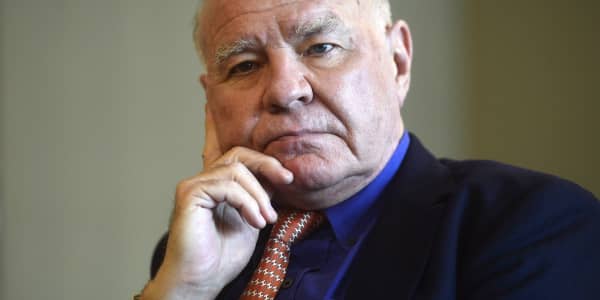Banks no longer are the center of the market universe, with the new leaders to come through manufacturing and productivity, hedge fund manager Meredith Whitney said Wednesday.
Whitney, who made her name in the markets as a bank analyst, said she has seen analyses that put the banking sector as a leader in market growth ahead, and she disagrees.
"The U.S. economy is transitioning from a financial services economy to something much more real," she said at ETF.com's Inside ETFs conference. Whitney added that when that transition involves "significantly less leverage with real manufacturing and productivity, there are going to be growing pains."
The economy is about midway through transitioning from the debt-driven economy that helped fuel the financial crisis, she said. The bright side: Such changes are usually long lasting, continuing for as long as 60 years.
Read MoreFor Meredith Whitney fund, backers hard to come by
In the meantime, investors will see a climate with heightened volatility and low interest rates, she said. Whitney doubted that the Federal Reserve would be able to fix the structural unemployment problem, despite its years of ultraeasy monetary policy that is slowly coming to an end.
"The jobs that will continue to grow are jobs that require a very high level of education and also jobs that require not a high level of education," she said. "You'll see a bifurcation with that."
The Fed this year is expected to begin raising rates.
"The financial markets are not going to be helped by rising rates," Whitney said.
What will help the economy is cheaper oil prices. Whitney wrote a book a few years ago championing growth of heartland states, and she said that the recent plunge in oil will help drive economic fundamentals.
"Because of the energy revolution in the United States, our relative price and cost to access energy is surely going to be cheaper than China and surely is going to be cheaper than Europe," she said.
Whitney rose to prominence on Wall Street through her now-famous call in 2007, while an analyst at Oppenheimer, that Citigroup would have to slash its dividend due to write-offs it would need to take on bad housing bets.
While the call made her a rock star in the financial world, the road ahead would not be smooth.
In late 2010, after leaving Oppenheimer and opening the Meredith Whitney Advisory Group, she made an equally famous but far less successful call: That 50 to 100 municipal bond defaults would cause upward of $100 billion in damage.
While the muni market immediately moved on the call—delivered on CBS news magazine "60 Minutes"—Whitney's dire prediction soon proved unfounded, tarnishing her credibility.
More troubles were ahead.
As her advisory firm struggled, she opened a hedge fund in 2013. Almost immediately stories began circulating of trouble at the fund amid dismal performance. Some of her biggest investors either were pulling money or demanding their investments back, according to a report from Bloomberg, which said the fund lost money in the first half of last year.





